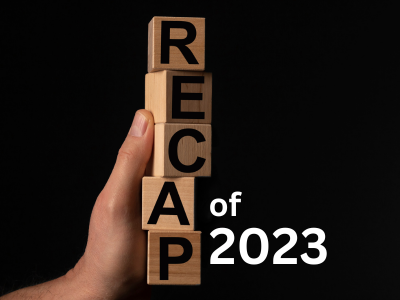Listen to this article
2023 kept the MFD/RIA community busy with a lot of paperwork and compliance issues. While the industry did update PAN and PEKRN number with MF folios, nomination ‘opt in’ and ‘opt out’ is still going on.
Overall, the rally in market kept the enthusiasm of MFDs/RIAs high. There are other events that happened in 2023 which will have a huge impact on their business in days to come. Let’s look at these changes.
Temporary suspension of B30 incentives
AMFI temporarily barred fund houses charging additional expenses in lieu of B30 retail assets with effect from February 24, 2023. In other words, distributors stopped getting any incentive for bringing B30 investors.
However, after a few months, SEBI proposed the introduction of a new incentive structure for MFDs for bringing in new investors from B30 cities and women investors irrespective of their location based on their PAN.
The market regulator proposed that AMCs should pay a flat fee of 1% of the size of the first application amount or the amount of SIP committed subject to a maximum incentive of Rs.2000. Such a structure will be applicable for bringing in new investors from B30 cities or women investors irrespective of their location. However, both cannot be applicable simultaneously.
ARN renewal norms became more stringent
AMFI urged mutual fund distributors to renew their ARN at least 30 days prior to the expiry date. This happened after AMFI saw instances where MFDs attend CPE just 2-3 days prior to the expiry of validity of ARN. AMFI said that MFDs should keep in mind that the entire renewal cycle takes over 15 working days.
Slight change in AUM transfer norms
AMFI slightly tweaked the ARN transfer norms to facilitate trail commission to MFDs if an investor changes MFDs during a specific window.
For instance, if an investor transfers his assets to the new distribution during the transition period i.e. when his existing MFD initiates transfer of AUM due to any reason, the investor can shift his assets to the new MFD and he will get trail commission for servicing him.
Other things remain unchanged i.e. if investor changes their MFDs in any other period, distributors will not get trail commission.
New distribution channel
SEBI introduced execution only platform (EOPs), which essentially means that online investment platforms like Coin by Zerodha, ET Money, Kuvera, Groww and Paytm Money will have to become an agent of investors or an agent of AMCs. While agents of investors will have to charge fees directly from investors, agents of AMCs can get commission in the form of transaction fees.
Representation from individual MFD community in SEBI MFAC
SEBI reconstituted its Mutual Fund Advisory Committee (MFAC) in which it included President of Foundation of Independent Financial Advisors (FIFA) Dhruv Mehta. He became the first representative from the individual MFD community in the 24-member panel. Neeraj Choksi of NJ India Invest also represents the distribution community.
New business opportunity
IRDAI introduced a new distribution channel to tap rural markets - ‘Bima Vahak’.
Bima Vahaks can distribute life and general insurance policies in rural areas at gram panchayat level through a hand-held electronic device.
IRDAI said that anyone can become an individual Bima Vahak or a corporate Bima Vahak to distribute specified policies available on ‘Bima Vistaar’, a digital platform that will enable agents to onboard new clients and make claim request completely online.
Existing intermediaries can become a corporate Bima Vahak to distribute insurance policies in rural areas and appoint individual Bima Vahaks as sub distributors in these locations.
Introduction of ‘all trail’ in AIF
SEBI directed AIF companies not to pay upfront commission to their distributors for distributing category III AIFs. Instead, the market regulator introduced all trail commission model for distributors in category III AIFs.
SEBI clarified that AIFs can pay such a commission from the management fee received by AIFs. That means, AIFs cannot pay commission from their company’s books.







